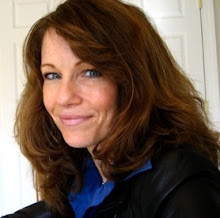Happy almost July 4th everyone! In honor of
Independence Day, I thought I’d share some facts that I find interesting about
the writing of The Declaration of Independence. Here’s hoping that they might
interest all of you writers and readers, too.
Did you know that Thomas Jefferson
was one of five men appointed to write The Declaration of Independence? John Adams of Massachusetts and Roger Sherman of
Connecticut, Benjamin Franklin of Pennsylvania, and Robert R. Livingston of New
York joined Mr. Jefferson. Doesn’t that sound like a powerful writer’s group?
Thomas Jefferson,
however, was asked to write the first draft. I’m guessing he was more of an
outliner than a pantser.
 This writing project
took him less than three weeks. This bit of information, frankly, makes me
a little sheepish about my slow writing pace. Upon completing the
final draft (after many), Mr. Jefferson showed it to Benjamin Franklin and John
Adams, who input their own revisions. The Congress, of course, made
more alterations and deletions. The process of
revision continued through all of July 3 and into the late morning of July 4.
And I’ve read that Mr. Jefferson was not thrilled with the final product.
Still, when the Declaration of Independence was finished, church bells rang out
in Philadelphia. Don’t we all celebrate once those final revisions are made,
for better or for worse?
This writing project
took him less than three weeks. This bit of information, frankly, makes me
a little sheepish about my slow writing pace. Upon completing the
final draft (after many), Mr. Jefferson showed it to Benjamin Franklin and John
Adams, who input their own revisions. The Congress, of course, made
more alterations and deletions. The process of
revision continued through all of July 3 and into the late morning of July 4.
And I’ve read that Mr. Jefferson was not thrilled with the final product.
Still, when the Declaration of Independence was finished, church bells rang out
in Philadelphia. Don’t we all celebrate once those final revisions are made,
for better or for worse?
Fifty years later, Thomas
Jefferson died on July 4, 1826, as did John Adams. It’s true: Two of the men
who crafted The Declaration of Independence died on the same day, and on the 50th anniversary of the adoption of the document. Kind
of wild, don’t you think?
And now I leave
you to your fireworks (for those of you celebrating the birth of the USA) with
a few quotes on the value of reading and writing:
“I cannot live without books.” ~
Thomas Jefferson
“The most valuable of all talents is that of never using two words
when one will do.” ~ Thomas
Jefferson
"Either
write something worth reading or do something worth writing." ~ Benjamin Franklin
“Let us dare to read, think, speak and write.” ~ John Adams
“I read my eyes out and can't read half enough...the more one reads
the more one sees we have to read.” ~ John Adams
Can you add any fun, Independence Day writer facts?
Happy fourth of July whether you celebrate Independence Day or not!
 Every once in a while, life pitches a curve ball. Two weeks
ago, one of these came my way--an unexpected health issue that has taken up all
of my time, interrupted my writing and reading life as well as my blogging. *Insert
growls and grumbles here.* I apologize for dropping out of the blogging
universe with no notice. Unfortunately, this couldn’t be helped. And, double
unfortunately, I need to take more time off. I am hoping that I won’t be away
for long, and that, instead, my blogging will simply be sporadic until
this curve ball passes on by. Time will tell. I miss blogging, writing, and
reading, of course, but sometimes stuff happens in our lives, right? Anyway, please
know that I will visit your blogs whenever possible and be back soon.
Every once in a while, life pitches a curve ball. Two weeks
ago, one of these came my way--an unexpected health issue that has taken up all
of my time, interrupted my writing and reading life as well as my blogging. *Insert
growls and grumbles here.* I apologize for dropping out of the blogging
universe with no notice. Unfortunately, this couldn’t be helped. And, double
unfortunately, I need to take more time off. I am hoping that I won’t be away
for long, and that, instead, my blogging will simply be sporadic until
this curve ball passes on by. Time will tell. I miss blogging, writing, and
reading, of course, but sometimes stuff happens in our lives, right? Anyway, please
know that I will visit your blogs whenever possible and be back soon.






